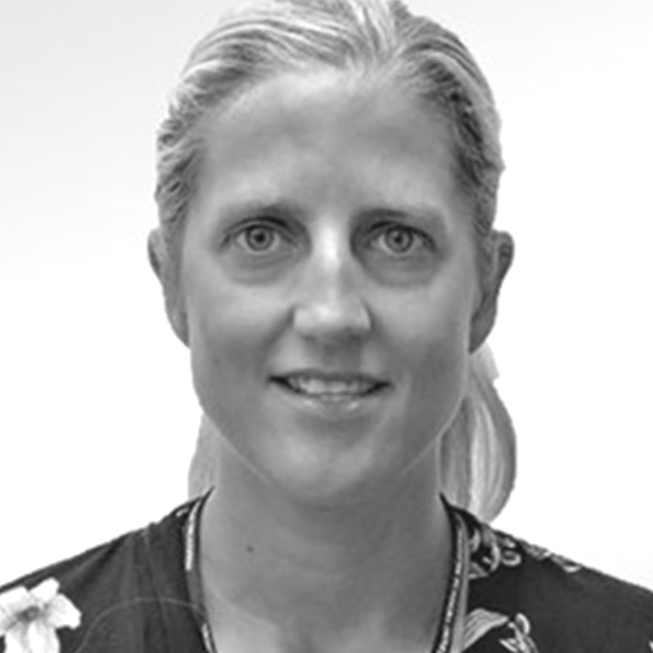 “I enjoy nurturing partnerships and I am continuously reminded of their importance in every we do.” As we embrace this new year as a time of renewal and revitalisation and as the culmination of the first four-years cycle of Teaching School Hubs, it seemed opportune to check in with our Executive Director, Martin Smith to reflect on his role in leading the Colyton and Kingsbridge Teaching School Hubs, as you will know as SWIFT (South West Institute for Teaching). Martin started his career as a Teacher of History in Herefordshire and became an Advanced Skills Teacher early in his career, working as a Teaching and Learning consultant for Gloucestershire Local Authority. For four years he was Deputy Head of a rural 11 to 18-years school in Herefordshire, before becoming a secondary Headteacher in East Devon for eight years. As the backdrop to his current leadership, Martin led the formation of the Dartmoor Teaching School Alliance and in 2020 he was appointed founding Director of Teaching Schools South West (TSSW) as one of six Department for Education’s test and learn Teaching School Hubs with Kingsbridge Community College the lead school. A year later, with the roll-out of 81 further Teaching School Hubs as national centres of excellence, Martin orchestrated combined of operations with the newly formed Colyton Teaching School Hub, with Colyton Grammar School the lead school to create SWIFT. 1. What did you anticipate from your role of leading the Test and Learn Teaching Schools South West (TSSW)? I anticipated that there was a great opportunity to create a system for schools that was more joined-up with less duplication, and less overload of providers delivering similar programmes. This, of course, was mainly the professional development Early Career Framework (ECF) programme, before the launch of the reformed National Professional Qualifications (NPQ's) and before the Department for Education’s Golden Thread of professional development. My role was to focus on bringing together partners who were experienced in making significant contributions in the area and included the former Teaching School Alliances and Multi Academy Trusts who were emerging onto the scene and growing rapidly. As part of my role, I anticipated bringing together the different components into a coherent partnership framework. 2. What do you believe to be the most important function for Teaching School Hubs and has that changed over the past four years? The most important function is to provide high-quality professional development for teachers and leaders because we know that if teachers and leaders engage in high-quality professional development, it has a positive impact on the quality of what they do in the classroom and the outcomes for young people. Teaching School Hubs also have a key role to play in the teacher recruitment and retention agenda. Recruitment, by improving initial teacher training (ITT) and making it accessible to more people. Retention, in running high-quality Early Career Framework programmes that support new teachers, and inspire them to stay in the profession for longer, and to provide a pathway for more experienced school leaders through the NPQs so that this journey of growing and developing continues beyond the first few years of teaching. Therefore, well trained and supported teachers are more likely to stay in the profession for the longer-term and Teaching School Hubs are making an important contribution to the recruitment and retention of teachers. It is also important to create a coherent and accessible professional development structure for Schools and Trusts. One of the drawbacks of the previous iterations of Teaching Schools was working with a large and disparate number of Teaching School Alliances – along the lines of 14 across Devon, Plymouth and Torbay, all of which were providing their own professional development and initial teacher training and as a Teaching School Hub we wanted to create a clear and accessible marketplace for schools to access high-quality professional development. A clear marketplace incentivises and supports schools to engage in professional development. 3. What has been the most constructive learning point to date in your tenure as Executive Director of SWIFT? It is more of a validation and something that is constantly validated for me is the importance of partnership in building long-term high-quality partnerships based on strong relationships with trust, a genuine collaboration, sharing and a generosity between partners. I enjoy nurturing partnerships and I am continuously reminded of their importance in every we do. 4. What do you find to be the most personally rewarding for you in the role? Personally, I have always enjoyed seeing people flourish in their roles and organisations and knowing that as Teaching School Hubs, we are enabling colleagues across the profession to take on new opportunities. Whether it is to design an ITT curriculum, become an ECF Mentor, lead ECF Mentors or facilitate an NPQ. I think that these opportunities across the partnership are truly inspiring and we know that they can make an important difference to people's professional lives. In addition, we now have a not-insignificant SWIFT Central Team of ten people and it is very gratifying to see them grow and develop as individuals and as a team to embrace challenges and celebrate successes. 5. What would be your vision and hope (s) for the next four years of Teaching School Hubs? If we are successful in our re-designation for the next four years, I think my vision will largely remain the same to create those high-quality pathways for teachers from initial teacher training through to Executive Headship and to continue to develop and ensure that these opportunities are meaningful and relevant. We always want to give schools in the South West the best of regional, national and available evidence. We have always believed very strongly in our vision to give South West leaders the best opportunities available and we are committed to this mission that continues, not least with the exciting opportunity we now have with SWIFT Teacher Training to increase the number of teachers entering the profession across our area. There are many great ITT providers within our region and we want to work alongside those existing providers to support potential trainees with the requisite skills and commitment who wish to get into teaching. I also hope that we can adapt to the changing educational context towards larger Multi Academy Trusts (MATs) and at a practical level, as Teaching School Hubs, we are very keen to be responsive to the needs of growing MATs and offer more personalised approaches to ITT and NPQs that allows them to access the benefits of a national programme, but at the same time put their own Trust stamp on the experience. We thank Martin for his reflections and his continued leadership of SWIFT. Interview by Jude Owens, SWIFT Executive Assistant
0 Comments
1/11/2023 0 Comments Interview with Andy Ogden, Director for CPD and Devon Training School Partnership at Tarka Learning Partnership “Working with SWIFT, I enjoy collaborating and creating high-quality CPD provision that fulfils our desire to do the best for our schools and our children that comes through our programmes.” Proving the benefits of our SWIFT partnership model in motion, Andy Ogden is one of our valued Delivery Partners. Developing people so that they can confidently and expertly carry out their classroom and office roles and benefit from professional and personal fulfilment and ultimately, provide the best education for children is a lifelong passion for Andy. Based at Devon Training School Partnership at Tarka Learning Partnership, Andy has gained nearly 30 years’ expertise and experience in education through a variety of roles, not least - Headteacher, School Improvement Advisor and National Strategy Consultant. He has designed the Subject Leader Apprenticeship for the Tarka Learning Partnership, led the Devon Teaching School Partnership and was previously Director of Devon Primary SCITT. Continuing Professional Development (CPD) at Tarka Learning Partnership is described as providing “inspiration leadership that models and secures outstanding personalised training, professional development and pastoral support.” Working with SWIFT, Andy is hands-on in delivering high-impact CPD training opportunities as a Lead Facilitator for the National Professional Qualifications (NPQs), delivering the Teach First ECT programme and is a key player in the SWIFT Membership Services Team. We asked him to reflect on this positive working relationship. 1. What do you believe to be most important in supporting schools?
Fundamentally, I think it is starting from where schools are and empowering them to do the job that they need to do. Clearly for schools this is making sure that the right environment, the right people, and the right training are in place so that children receive the best education. I believe the role of SWIFT is in supporting schools to do their job in the way that is right for them and their children and communities as a service relationship in understanding the needs of schools, and how best to support them. Schools will then have choices available to them about the way in which they operate and this goes beyond professional development and includes the benefits of collaborative networks. I would also hope that by listening to schools they feel the SWIFT offer is more bespoke to their needs, rather than simply generic training, and they are genuinely supported in their school improvement work. 2. What do you perceive to be the current challenges for schools in North Devon? I think one of the biggest challenges that is probably true of all schools nationally, but particularly for Devon, is our provision for special needs children, and the training of colleagues who work with our most vulnerable children and the need to access services for alternative provision. In North Devon, there is a shortage of specialist provision available exacerbated by funding restrictions and falling roles in some rural areas. Hence, we are having to source a lot of support from within our own schools and settings and make the best of what we have available to us and the importance of working collaboratively. Given our North Devon location, we can feel isolated and sometimes because we are not near some of the major urban centres we need to look and reach outwards to ensure that we are abreast of the best that there is nationally in terms of education. I think we recognise that for a long period of time there has not always been the infrastructure to support North Devon and therefore we have to do a lot of this work ourselves. Therefore, the challenge is how to form partnerships and to create an infrastructure that is sustainable in North Devon and meets our local needs; whilst still recognising that we have a lot to learn beyond North Devon. Linked to this challenge is the recruitment of teachers, Teaching Assistants and support staff to the area; which is clearly another nationwide challenge. But we like to think that North Devon is a lovely place to live and come and work; and although housing is expensive, we have a lot of new housing and would hope that this will bring more children to our schools. In fact, I am sitting in a brand-new school as we speak that has an intake of 60 children a year. So, there are reasons to be hopeful! But in some of the surrounding areas outside Barnstable in particular, the pupil projections are of rolls beginning to fall off. Although I am not quite sure of the reasons. Possibly the increase in second homes common to the Devon area as a whole. 3. How does Tarka Learning Partnership benefit from working with SWIFT? I am pleased to talk about this partnership and I would go back to the history of working with SWIFT when there were previously around ten of the original Teaching Schools across Devon and Torbay and Plymouth. I remember some of these first meetings where it was clear that the educational landscape was going to change. The fundamental wish was that we all needed to work together for the benefit of all schools and children and this became our guiding vision. What we also gained from those meetings was that colleagues had developed their own capacity and specialisms and expertise in certain areas, and together, we were greater than the sum of our parts (the SWIFT symbol!). I think the biggest gain as a Trust is the fact that we have other colleagues who are very willing to collaborate with us and to think through challenges and opportunities, to design training and support that will help us all. For example, we have not all got the capacity to run our own subject networks. But by collaborating with other SWIFT partners, we can deliver this work. We, at Devon Training School Partnership, are now facilitating across most of the primary phase, but our secondary colleagues are leading other work, which becomes more viable because all schools can participate. It also gives us access to the Golden Thread programmes with the Appropriate Body Service, the Early Career Framework, and National Professional Qualifications, which again, we support, but we could not deliver on our own. The other benefit is bringing opportunities for our staff. For example, we have two safeguarding leads who were funded by SWIFT to attend the NSPCC six-day programme to train other staff and are now running those programmes which are very highly evaluated and have brought their own experience and expertise to the NSPCC training and are leading meaningful safeguarding training as trainers in their own right. Similarly, we have another member of staff who is running the Writing Moderations training in North Devon and we are able to link with fellow SWIFT partners, Exeter Consortium Schools’ Alliance and Riviera Training School Alliance who run these sessions in their localities as well; so that every primary school teacher has got access to a moderation group. I think also for our staff, they benefit from a very comprehensive professional development offer, which they would not otherwise enjoy because we are able to tap into and fill the gaps through the entire SWIFT programme, combined with some of our own internal training, and we can additionally signpost to other opportunities. As an employer, we believe that we our staff have a wide ranging CPD offer, and one that we could not necessarily do on our own in magnifying on the biggest scale. 4. What are your hopes for future working between Tarka and SWIFT? Essentially, it is probably doing more of what we have been doing to date so that we are working towards a comprehensive and cohesive offer of training. in addition, considering the educational landscape has become quite fragmented for different reasons - different sorts of schools and approaches, SWIFT can become a democratic voice, in drawing schools together in what we can do together and our commonalities and help to provide a forum that is shaping the landscape. Increasingly, the partnership that is SWIFT is becoming a voice for leaders, staff, and children to have their say in how the education landscape should evolve. 5. What do you find to be most rewarding from working with SWIFT? Above all, I think it gets me outside my own echo chamber by being involved with other people beyond my own Trust, School, and locality, which is always an enriching experience. It obviously increases my knowledge, skills and understanding by being in contact with a wider network of educational professionals and conferences, which I really enjoy. SWIFT procures some excellent national speakers who provide relevant and up-to-date training and thinking as well. Personally, I think that it has given me training and professional development opportunities in the same way as I mentioned previously for our staff. I enjoy being a Facilitator for the NPQs and I have always loved working with the Early Career Teachers and having my own cohorts. Also, there is the enjoyment of working with other colleagues to shape and design programmes that will benefit schools and to play my part in shaping the SWIFT vision. There is a true feeling of togetherness; that we are all responsible for developing our school staff. For instance, I could feel this last term at the Early Careers Teachers induction conference and with the NPQs Facilitation Team. It did not matter which school the Early Career Teachers or NPQ Leaders attended, or their locality; we were all helping to grow the next generation of teachers and leaders and doing it together. It is this common goal in what we are trying to do for all of our schools, children and leaders. I am very proud to be part of SWIFT and I believe that it is a good way forward and we should celebrate what SWIFT has achieved to date in quite a short space of time to support schools. Interview by Jude Owens, PA to the Executive Team and Governance 29/9/2022 0 Comments Interview with a SWIFT Partner | Director of West Country Training School Alliance (WCTSA) Jen Knowles Director of West Country Training School Alliance, Jen Knowles presents a palpable excitement and commitment to her role and all the more so this academic year with SWIFT’s expansion of the Appropriate Body Service and Early Career Framework she is working full-time in the role. 1. How long has West Country Training School Alliance (WCTSA) been a SWIFT partner? Since its inception as SWIFT (South West Institute for Teaching) - officially from April 2021, before the fully fledged programmes got underway from September that year. Although it is fair to say that we were involved in prior strategic planning with Colyton Grammar School in its early stages as a Teaching School Hub through conversations with SWIFT Director, Martin Smith. It is certainly great to be on board working in partnership as SWIFT and I continue to be enthused and excited about us working together. 2. What are the benefits to West Country Training School Alliance as a SWIFT partner? Lots! First and foremost, having a strategic say in the professional development for our schools is a huge benefit as opposed to a top-down approach. I value the way that all the SWIFT partners, including WCTSA, can have input in developing the Universal Programme of continuing professional development and other training programmes. I also value the way we work towards common goals in partnership with national leads and providers. For example, working with Teach First, English Hubs, Research Schools, Schools Trust in building positive working relationships on a national and local level and it is great to be leading the popular WalkThrus programme for SWIFT working in partnership with national speaker, Tom Sherrington. As a SWIFT partner, we take an active role in certain areas of the Teaching School Hub delivery, including the Appropriate Body Service for Colyton Teaching School Hub. Engaging in early exploratory work in choosing our national partner for the Early Career Framework delivery and the support and development was also beneficial. Building on our work as a legacy Teaching School Alliance in networking with leads and teachers through our Professional Communities network is both beneficial and enjoyable. Ultimately our work with SWIFT enhances the positive profile for West Country and validates the two-way process of our established alliance of schools whom we continue to support, combined with our hands-on role as a SWIFT partner. It is definitely more effective working together for a wider reach across the region - and beyond, in working together as two Teaching School Hubs united as SWIFT, offering a range of courses. 3. What are the benefits to you personally as Director of WCTSA? I relish my very varied role and I look forward to doing it every day – I am passionate about the process of professional development from supporting trainee teachers to Headteachers, as a perfect exemplification of the Golden Thread. I also appreciate Martin’s proactiveness in continuing to upskill, push and upgrade us for our own professional development as SWIFT Directors. For example, the Kingsbridge Research School Theory of Change training was instructive for my work as a Director. Within the SWIFT team, there is an incredible amount of expertise and I feel very grateful working and learning from fellow like-minded professionals every day. 4. What are your goals and aspirations for this academic year working with SWIFT? As a lead partner for the Appropriate Body Service (for Colyton), I am keen to build on the success of last academic year - and to continue to strengthen our support for Early Career Teachers at what is a really integral time in their career in terms of the support that they need. I aspire to continue our networking with schools and to be open and visible as a SWIFT partner in continuing to strengthen and support teachers with high-quality professional development opportunities. The new WalkThrus initiative will continue apace and it is great to be working with a large number of schools on the launch, supporting them to implement coaching programmes based on the Walkthrus in their schools. Similarly, I want to continue to expand our Professional Communities using the feedback from our members to drive the input that we provide for teachers so that it is personalised to their needs. For example, last year, the common consensus in one of our communities was that they really wanted some CPD on subject specific Ofsted deep dives and we were able to facilitate this for them and it was in turn very positively evaluated. We have some very exciting new Professional Communities, such as Food which are providing opportunities for professionals who might otherwise be working individually or in very small teams to collaborate with other professionals across the region. 5. What are your longer-term expectations of working within the Teaching School Hub programme? A big question! Obviously, I want WCTSA to reach out to more schools and to continue to strengthen our relationships with existing schools which is so important within the Teaching School Hub model. We aspire to continue to provide further opportunities for schools and teachers across the Golden Thread building on the feedback that we receive to ensure that everyone gets exposure and access to the best evidence informed practice and support. Striving to be even better. We thank Jen for her reflections and we also very much value working with her and WCTSA. Interview by Jude Owens, PA to the SWIFT Executive Team |
SWIFT News
|
SPONSORED BY
Join us, be a part of our SWIFT community |
© COPYRIGHT 2022 SOUTH WEST INSTITUTE FOR TEACHING SWIFT. ALL RIGHTS RESERVED | Website by brightblueC
VIEW OUR PRIVACY NOTICES | VIEW OUR COURSE T&CS
VIEW OUR PRIVACY NOTICES | VIEW OUR COURSE T&CS




 RSS Feed
RSS Feed





